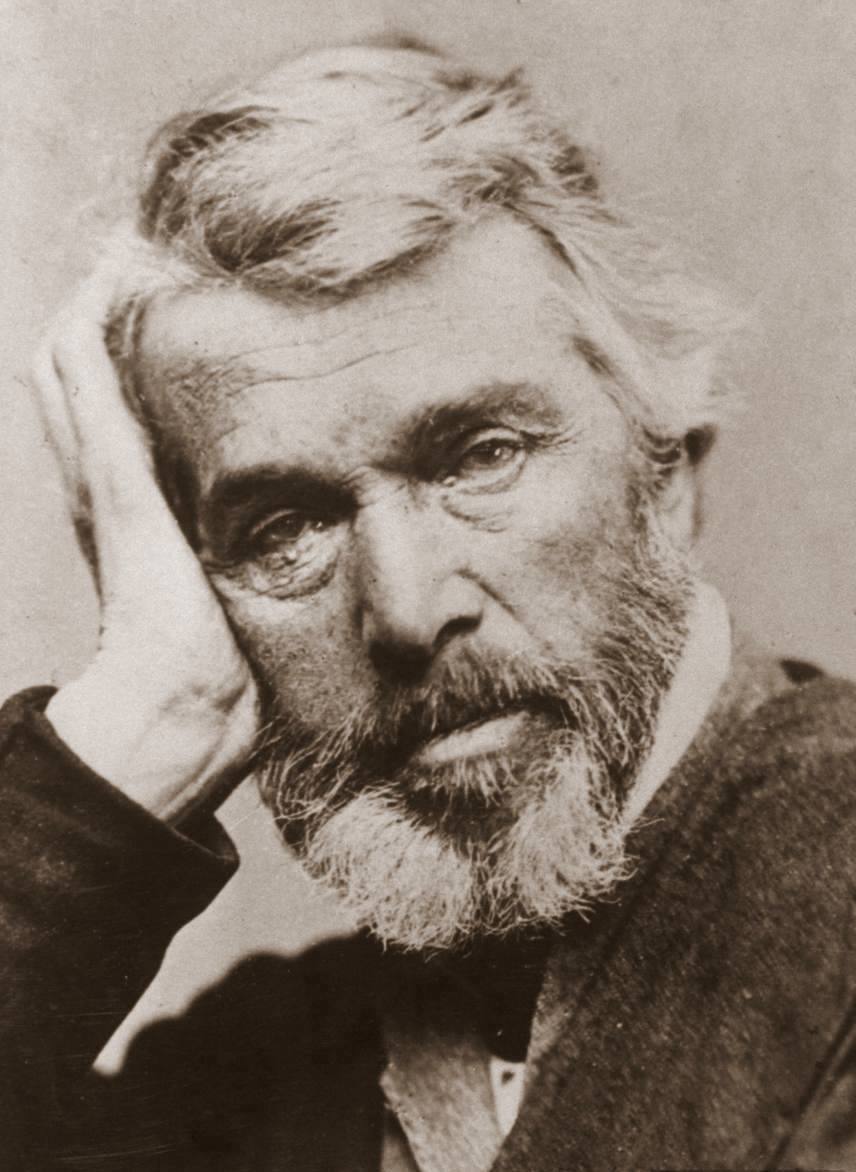1840s, Heroes and Hero-Worship (1840), The Hero as Divinity
Thomas Carlyle Quotes
1850s, Latter-Day Pamphlets (1850), Downing Street (April 1, 1850)
1850s, Latter-Day Pamphlets (1850), Stump Orator (May 1, 1850)
1830s, Sir Walter Scott (1838)
1820s, Signs of the Times (1829)
“What you see, yet can not see over, is as good as infinite.”
Bk. II, ch. 1.
1830s, Sartor Resartus (1833–1834)
1850s, Latter-Day Pamphlets (1850), The New Downing Street (April 15, 1850)
1820s, Signs of the Times (1829)
1840s, Past and Present (1843)
“Lord Bacon could as easily have created this planet as he could have written Hamlet.”
According to Moncure Conway (Thomas Carlyle (1881) p. 122) Carlyle said this in reply to a Baconian enthusiast who was attempting to convert him; alternatively reported as "the planets", remark in discussion, reported in Bartlett's Familiar Quotations, 10th ed. (1919).
Attributed
“In every man's writings, the character of the writer must lie recorded.”
Goethe (1828).
1820s, Critical and Miscellaneous Essays (1827–1855)
1840s, Past and Present (1843)
1840s, Past and Present (1843)
1840s, Heroes and Hero-Worship (1840), The Hero as Prophet
1850s, Latter-Day Pamphlets (1850), The Present Time (February 1, 1850)
“Alas! the fearful Unbelief is unbelief in yourself.”
Bk. II, ch. 7.
1830s, Sartor Resartus (1833–1834)
1840s, Past and Present (1843)
1840s, Heroes and Hero-Worship (1840), The Hero As King
1840s, Heroes and Hero-Worship (1840), The Hero as Divinity
1840s, Heroes and Hero-Worship (1840), The Hero as Man of Letters
1840s, Heroes and Hero-Worship (1840), The Hero as Divinity
1840s, Past and Present (1843)
1840s, Heroes and Hero-Worship (1840), The Hero as Divinity
1850s, Latter-Day Pamphlets (1850), Stump Orator (May 1, 1850)
1840s, Heroes and Hero-Worship (1840), The Hero as Priest
1840s, Heroes and Hero-Worship (1840), The Hero as Prophet
“Everywhere in life, the true question is not what we gain, but what we do.”
Essays. Goethe's Helena.
1830s, Sir Walter Scott (1838)
Latter Day Pamphlet, No. 8. (1850).
1820s, Critical and Miscellaneous Essays (1827–1855)
1840s, Heroes and Hero-Worship (1840), The Hero as Divinity
1840s, Heroes and Hero-Worship (1840), The Hero as Divinity
1820s, Signs of the Times (1829)
Bk. III http://books.google.com/books?id=8nI5AAAAcAAJ&q=%22Not+only+was+Thebes+built+by+the+music+of+an+Orpheus+but+without+the+music+of+some+inspired+Orpheus+was+no+city+ever+built+no+work+that+man+glories+in+ever+done%22&pg=PA182#v=onepage, ch. 8 http://books.google.com/books?id=m2IyAQAAMAAJ&q=%22Not+only+was+Thebes+built+by+the+music+of+an+Orpheus+but+without+the+music+of+some+inspired+Orpheus+was+no+city+ever+built+no+work+that+man+glories+in+ever+done%22&pg=PA86#v=onepage.
1830s, Sartor Resartus (1833–1834)
“How does the poet speak to men with power, but by being still more a man than they?”
Burns.
1820s, Critical and Miscellaneous Essays (1827–1855)
1850s, Latter-Day Pamphlets (1850), Downing Street (April 1, 1850)
1850s, Latter-Day Pamphlets (1850), The Present Time (February 1, 1850)
“"Genius" (which means transcendent capacity of taking trouble, first of all).”
Life of Fredrick the Great http://www.cs.cmu.edu/~spok/metabook/fgreat.html, Bk. IV, ch. 3 (1858–1865). Sometimes misreported as "Genius is an infinite capacity for taking pains"; see Paul F. Boller, Jr., and John George, They Never Said It: A Book of Fake Quotes, Misquotes, & Misleading Attributions (1989), p. 12.
1860s
“Great souls are always loyally submissive, reverent to what is over them.”
1840s, Heroes and Hero-Worship (1840), The Hero as Man of Letters
1840s, Heroes and Hero-Worship (1840), The Hero as Man of Letters
“A well-written Life is almost as rare as a well-spent one.”
Richter (1827).
1820s, Critical and Miscellaneous Essays (1827–1855)
Bk. III, ch. 11.
1840s, Past and Present (1843)
1850s, Latter-Day Pamphlets (1850), Stump Orator (May 1, 1850)
1820s, Signs of the Times (1829)
1840s, Past and Present (1843)
1840s, Heroes and Hero-Worship (1840), The Hero as Prophet
Richter.
1820s, Critical and Miscellaneous Essays (1827–1855)
1850s, Latter-Day Pamphlets (1850), Downing Street (April 1, 1850)
